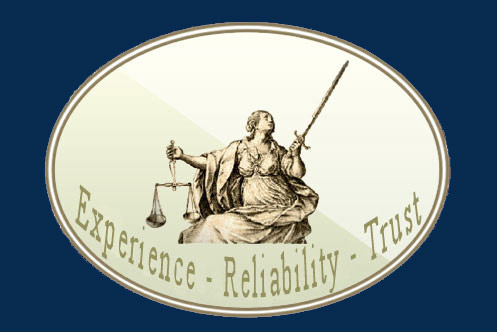Thai Criminal System
www.lawyerpattaya-thailand.com ~ www.the-social-lawyers-pattaya.com
Chapter One
(extract from an article of Dr. Carlo Filippo Ciambrelli)


Committing a crime in thailand, a passage to hell.
Let me start by the end or, as we may say, let's grasp the bull by the horns. Thailand, the so called "Land of Smiles", it's definitely one of the worst places in the world to commit a crime.
The laws governing a country are divided into two major legal systems: Common Law and Statutory Law.
In countries, as Thailand, governed by the "statutory law system" the laws are clearly "codified" or "listed" in a sort of legal-Bibles : the penal (criminal) Code and the civil Code.
In the Penal Code, (link to Thai Penal Code) practically every possible crime is well described and "equipped" with the indication of the relative minimum and maximum applicable penalty. The difference between the minimum and the maximum penalty is the only feasible discretion conceded to judges and juries.
Consequently in the majorities of the countries adopting the "rigid-although-clear" statutory law system, (S.L.S.) the judge will apply the law and impose the penalty in relation of the circumstances, including a possible admission of guilt given to the court by the defendant, within the limits clearly written in the Code. And here we find the first huge difference between the Thai and the European S.L.S.: In Thailand a confession will practically, even though not automatically, in most of the cases cut the penalty by half. Including the "minimum applicable penalty". Furthermore, in Thailand, as in the Common Law countries, it is possible to ask (apply) for a bail bond and remain free at least until the first degree sentence. At this point you might think "the title of this article must be a mistake", but ...I'm afraid that it is not so, not at all!
To make thinks a bit more clear, let's "go back" to the beginning and see what happens in real life if you are accused of a crime. Let's see how things can be drastically different then in the Western world.
The first authority called to "judge" upon the receiving of a crime-report is the police. No coroner, no investigating judge. The police will decide, for instance, if an autopsy is necessary and, more important, if the proves or the clues against the suspect of a crime are enough to arrest him, to transmit the case to the court and if it is possible to release him or her upon the payment of a bail.
Should the police deny the bail, the "defendant" will be transferred to a remand awaiting the judgement. He/her can therefore apply for a new release on bail directly to the court with uncertain results.
I don't know if you have ever had the chance to visit a remand. In my experience as court interpreter and "volunteer upon request of the embassies", I often had such a privilege and I can tell you that they are not exactly holidays-resorts! To say the least, you would not enjoy being there.
Furthermore, not to scare you, rather to warn you (a man forewarned is a man forearmed) you would better consider that there are a considerable number of crimes that do not foreseen the possibility to be released on bail at all, regardless the "solidity" of the accusations.
The main criteria adopted to deem if a suspected-culprit can benefit of a release on bail are : the possibilities of his/her escape, (obviously much higher if accused is a foreign national), the possibility of evidence-tampering and the alleged social dangerousness of the suspect. Basically all crimes against the society, the governments (not only the Thai government), the state-institutions etc. as, for instance, currency counterfeiting, credit cards forgery, to not mention lease-majesty, leave very little space to achieve a temporary release on bail. Furthermore such kind of crimes are very seriously punished in Thailand.
Out of metaphor and just to clarify the concept, we can say that it would be easier to be released on bail for somebody accused of an "attempted murder" rather then of one of the crimes above mentioned.
I suppose (and hope) that whatever we have written today will never regard our readers, but what happen if you are falsely or wrongly accused by someone? What about if you are the victim of a fraud or of an error? How long does a trial will last?
Answers coming soon...
-
